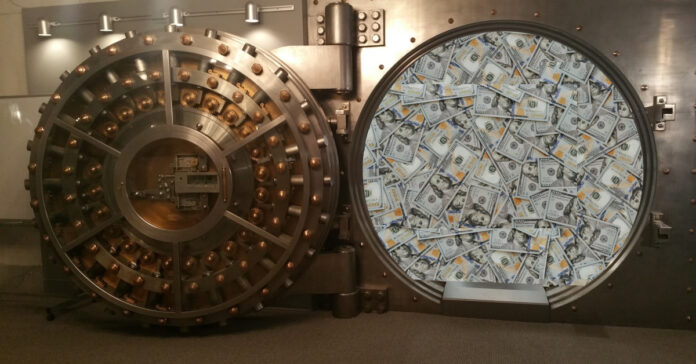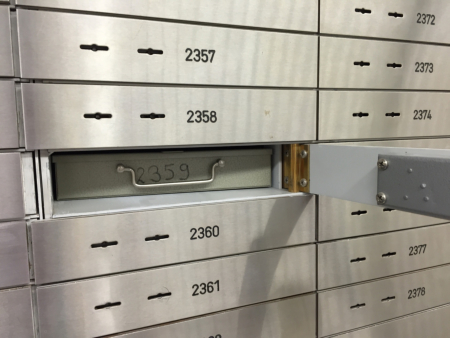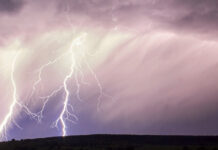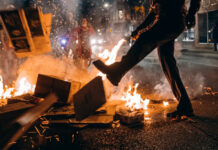
For those new to the concept, let’s define the term “bank run.” A bank run occurs when a large number of people withdraw, or attempt to withdraw, their money from a bank because they think the bank may fail and fear losing their money. This often becomes a self-fulfilling prophecy as the people who withdraw their savings cause the very instability they fear. An institution may have to sell its assets to pay back its depositors, and when forced to sell at a loss due to market conditions, may not be able to cover the withdrawals. Large banks can borrow millions from the Federal Reserve so that they don’t have to sell depressed assets in fire sale, but it places them in a precarious position.
You can see a list of bank runs on Wikipedia. Interestingly, they seem to have become more common in this century, with quite a few associated with the beginning of the Great Recession in 2008. Because we are likely headed into another recession, that doesn’t bode well for banks or people with large sums of money in them.
How a Bank Run Starts
A bank run may start slowly, but gains speed rapidly, and ends when the bank collapses or the government takes it over. If a bank run happens concurrently at multiple banks, the government will probably declare a bank holiday and give things a couple of days to settle down. This will also allow them to transport millions of dollars in cash to the affected bank branches so they can give money to the depositors. Once it is clear there is money for withdrawals, the panic will subside.
Bank runs start with a few savvy people worry about their bank’s finances and start transferring and withdrawing their funds. Word spreads, and more people make withdrawals. At some point, the bank does not have enough cash to honor its obligations and the patrons get angry. That hits social media, and as concern grows, more people show up to make a withdrawal. Perhaps a line forms out front and that gets on the evening news. By the next day, the line is blocks long.
Many banks fail and no one realizes it. For example, the FDIC will take over a small bank that becomes insolvent because too many loans fail. The FDIC which will absorb the losses up to $250,000 per customer and then spin off the viable accounts to another bank. When it is a regional bank, they will often seek a larger bank to acquire it. This kind of consolidation is why we have only a few very large banks.
Even more dangerous than a bank run, which you can see unfolding if you watch carefully, is a bank collapse. These are likely to strike suddenly and without warning. By the time you hear about it, the collapse may be over, the bail in complete, and your account is now at a new bank.
What to Do
If you think your bank is going to fail, don’t run down there and wait in line unless you have less than $1,000 in your account. If you try to withdraw $2,500 or more, they won’t give it to you in cash. They might give you a check, but if the bank collapses, the check will be of questionable value. Instead, transfer the money in your account to another bank or use it to pay your upcoming bills using your bank’s online bill pay functionality. If you have tens of thousands of dollars, you might be better off wiring the money to another bank rather than waiting for the ACH transfer. Yes, they may charge you a $25 wire transfer fee, but your money will be there almost immediately.
The key is to act early. Get your money out of the bank before they halt withdrawals and transfers.
If you need cash, go to the ATM. If the ATMs for your specific bank have run out of cash because of the bank run, go to an ATM at a different bank or even at a convenience store that allows you to withdraw money from your bank. You’ll have to pay the outrageous fee they charge you, but you will have cash. Better yet, have cash on hand at all times so you don’t need to make this kind of panic withdrawal.
Have Multiple Banks
Whatever you do, don’t keep more than $250,000 in any single bank. That’s the amount covered by the FDIC. If you have $500,000 in a bank and it goes under, you could lose half. These days, the likelihood of a “bail in” is higher than ever. (A bail in is when money from account holders is used to prop up the bank. Yes, they take your money and use it to save the bank.) If you had $500,000 in a bank, I’d question why.
If I had hundreds of thousands of dollars in savings, I would have five or six different accounts. This would include an account at a big-name national bank, a regional bank, a local community bank, a credit union, at an investment firm or brokerage house, and an account at a non-bank company like American Express. This kind of diversification should help ensure that some of your money won’t be lost if the big banks collapse or the brokerage companies go under. In fact, a credit union may be among the safest places for your money.
Safe Deposit Boxes
The downside of a safe deposit box is that you can’t go online and transfer the contents out. You have to show up in person and have your key handy. That’s impossible if the bank is closed.

Banks will tell you not to put cash in your safe deposit box, but that doesn’t stop people from doing so. The biggest problem with this is you can’t access your box when the bank is closed. If there’s something you need to survive TEOTWAWKI, don’t keep it in your safe deposit box. On the other hand, it’s a great place to put important papers you rarely need, like your marriage certificate, insurance documents, and a copy of your year-end IRA or 401k statement.
If you choose to put precious metals in your safe deposit box, don’t put them all in there. Diversify your storage locations and have some on hand for use if the currency collapses. In fact, if you foresee a currency collapse of your bank becoming insolvent, clean out your safe deposit box. You may be better off with those items buried in your back yard.
There are plenty of videos about how to create secret hiding places in your home. If you aren’t clever enough to find a secure hiding place, watch one of them. Just find a better place to store your valuables than your sock drawer, in the freezer, inside the toilet tank, or under the mattress.







